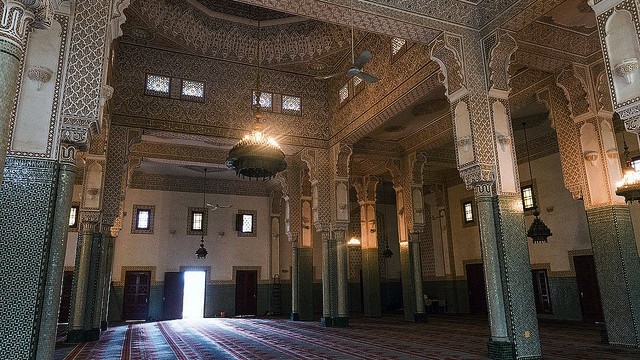During the holy month of Ramadan, which runs from June 18 to July 17 this year, observant Muslims forego eating, drinking, and smoking (among other things) from sunup to sundown, then feast and celebrate in the evenings. If you’re a non-Muslim traveling to a country with a sizable Muslim population during the next month, you won’t be expected to fast, but you’ll likely need to make a few adjustments to your routine because things won’t necessarily be “business as usual” in places like Egypt, Morocco, Tunisia, and Somalia. Here are some tips on how to navigate traveling during Ramadan, and how to do it respectfully.
1. Plan carefully
Since many businesses are closed or operate with limited hours during the day, it’s harder to book daytime excursions on the fly or just grab a spontaneous meal. So to avoid getting caught out without anything to do and nothing to eat for an entire afternoon, try to book tours or bus tickets in advance online (or on the phone), and research which restaurants and museums are open and during what hours. You can also stock up on food from the evening markets and pack a lunch, or limit yourself to restaurants that cater to foreign tourists (which usually keep “normal” hours).
2. Practice good etiquette
Don’t eat, drink, or smoke in public. It’s considered rude to openly indulge in front of people who may not have had a meal (or a cigarette) for 12 hours or more. (The strictness with which this rule is observed varies from country to country, so make sure you know the situation where you are.) Take your packed lunch to your hotel room and eat it there, or find one of the above-mentioned tourist restaurants. And since Ramadan is a month for spiritual renewal and re-connecting with faith, the normal Islamic customs of modesty and courtesy and obeyed more closely: so dress conservatively (especially if you are a woman) and don’t curse or engage in public displays of affection when out and about.
3. Expect some people to be cranky
The combination of heat, dehydration and low blood sugar can make people a little irritable, to say the least. So cut your bus driver some slack if he’s a little curt with you, or if the hotel concierge looks like he couldn’t care less that you need to find a drycleaner (which probably isn’t open anyway).
4. Participate in the festivities
In the evenings the city streets erupt with lively activity, as the fast is broken and people begin to come back to life. Instead of retreating to a bar or your hotel room, get out there and party with the locals! If you’re staying in a small guesthouse, you may be invited to join the host family for iftar, the end-of-fast meal. You should accept this hospitality. And if you find yourself in a Muslim country at the end of Ramadan, definitely take part in the festival of Eid al Fitr, which is three days of non-stop feasting, prayer, dancing and music. The reason you travel is to immerse yourself in the local culture, right? So dive right in.
5. Pack a good attitude
Yes, Ramadan can cause some inconvenience for travelers, because shopping, dining, and sightseeing may all be limited. But the best travelers “go with the flow,” and see every obstacle as a chance to grow and learn. Even if Islam is not your faith, you can appreciate that it’s a holiday of deep spiritual meaning and physical sacrifice, and adjust your expectations accordingly.

